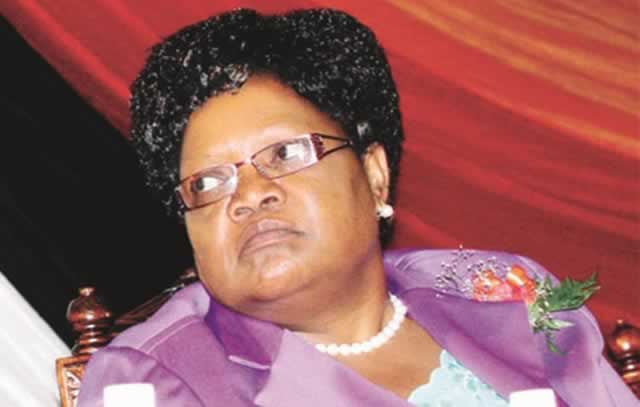Buy Zim hosts buy local summit

Vandudzai Zirebwa Buy Zimbabwe
Ten days to go!
Buy Zimbabwe, the country’s National Buy Local Campaign, is hosting the 5th Buy Local Summit from June 17 to 19 at the Elephant Hills Hotel in the Resort Town of Victoria Falls.
The buy local message is an enduring call to action for the public and private sectors, businesses, government entities and consumers. The call is to buy local products and services so that local businesses can grow, thereby encouraging economic growth and job creation.
Buy Zimbabwe’s mandate also includes promoting national pride and social cohesion. These efforts include promoting and showcasing local products and services.
Buying locally manufactured goods — whether it involves purchasing machinery worth millions or even just a t-shirt — begins a cycle in which you re-invest money into the local economy, instead of spending it on an imported product and sending the money outbound.
Spending your money on a Zimbabwean product means you also help keep the worker who made that product in their job. When you buy local you help create jobs and, in turn, help alleviate poverty. That, simply put, is the multiplier effect of buying local.
The annual summit, themed “Enhancing local preference for Industry Revival”, will include discussions around local procurement, job creation and the impact of the marauding import bill on the manufacturing sector. There will also be discussions on the value chain imperatives mainly focusing on agriculture as well as discussions on the mining sector policy environment as an anchor sector of our economic recovery.
Local procurement has been recognised as a key driver for economic growth and job creation by Government, business, labour unions and community constituencies. Buy Zimbabwe therefore sees the annual summit as an essential tool to facilitate and influence interaction between small businesses/entrepreneurs and procurement decision makers.
The summit also serves as a platform for Government and business to provide feedback on local procurement efforts and the influence it has on job creation. This event forms part of Buy Zimbabwe’s commitment to sustainable economic growth, job-creation and the socio-economic welfare of Zimbabwe.
An estimated 150 delegates will participate in the 2015 summit, where they will have an opportunity to interact and network with Government officials, procurement officers, entrepreneurs and business owners. Several Cabinet ministers who include the Minister of Finance and Economic Development — Patrick Chinamasa, Minister of Industry and Commerce — Mike Bimha, Minister of Mines and Mining Development — Walter Chidhakwa, and Minister of ICT and Courier Services — Supa Mandiwanzira will attend the summit.
Chance Kabaghe, who is a former Zambia Minister of Agriculture and also the Chairman of Seed Co Zambia, will present on unlocking barriers to agriculture revolution and the role of policy and institutions. His presentation is expected to give insight on how Zambia has managed to move from a net grain importer position to a grain exporter. It is also expected that the discussions will endeavour to answer the question why Zimbabwe has remained a net food importer 15 years after the land reform.
At the centre of discussion will also be the mining sector developments and its contribution to the economy. The Mining sector’s contribution to the economy occurs on several interrelated tracks: contribution to GDP, employment, foreign exchange generation, social infrastructure development and the fiscus. What is often not included in the discourse on mining sector contribution to the economy is the downstream multiplier effects of all economic activities directly or indirectly deriving sustenance from the mining sector.
The participating manufacturing companies are also expected to engage the authorities on measures on streamlining competition from cheap imports which are unnecessarily eating away their market share.
The summit is expected to provide a road map towards a smart protection of our local manufacturers who have remained resolute under the adverse economic environment they are subjected to.
Consumers, both at home and at the workplace, have immense power in their pockets.
They possess the power to help uplift and grow the economy, to create jobs and to make a tangible difference in the lives of ordinary Zimbabweans.
This is possible if we all make a decision to buy local goods and services where ever possible.










Comments